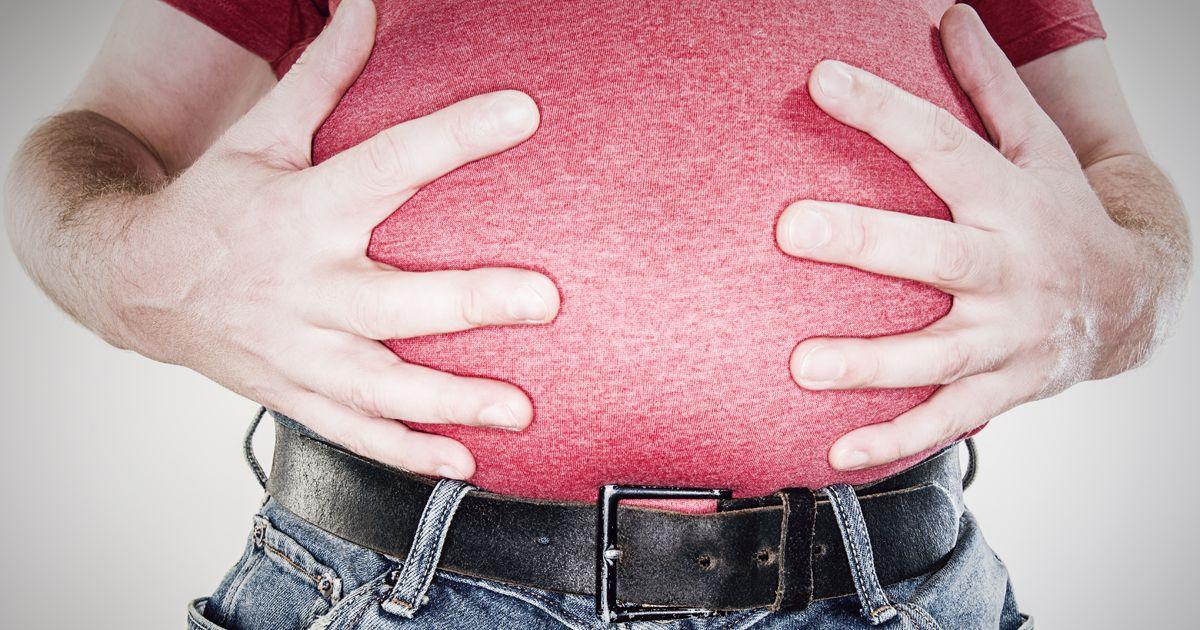Symptoms Of Acid Reflux
Current research indicates sixty million Americans currently suffer from acid reflux disease. Acid reflux occurs when the entrance valve to the stomach, called the lower esophageal sphincter, is unable to close or opens too often, leaving the esophagus exposed to increased amounts of stomach acid. One of the most common causes of acid reflux is hiatal herniation, which is a separation of the upper stomach from the chest wall. Other known causes include eating large meals before lying down, obesity, smoking, drinking carbonated and alcoholic beverages, and eating spicy foods, citrus fruits, or fatty foods. Individuals who experience symptoms of acid reflux more than two times per week should seek assistance from a physician.
Unrelenting Hiccups

One symptom of acid reflux is unrelenting hiccups. Hiccups can be annoying to the individual experiencing them and can occur without warning. Those with acid reflux may find hiccups especially annoying, as they may seem to go on without end. The cause for hiccups in acid reflux patients is the spontaneous contraction of the diaphragm, causing the patient to inhale air into the throat, irritating the voice box. For breathing to return to normal, the diaphragm must cease contractions. While not particularly dangerous, hiccups can be uncomfortable. Individuals experiencing extended periods of hiccuping can attempt to regulate their breathing or sip on cold water.
Unexplained Weight Loss

Unexplained weight loss is another common symptom of acid reflux disease. Research indicates weight loss may be attributed to the burning and pain associated with the acid reflux will cause individuals to unintentionally avoid eating since symptoms tend to occur after an individual has consumed food. Additionally, stomach acid in the esophagus can also lead to ulcers, thus increasing pain and decreasing appetite. One way to manage weight while living with acid reflux is to be conscious of food consumed and what triggers the accumulation of acid. Avoiding foods that trigger reflux and focusing on a healthy diet can help minimize the symptoms and increase appetite, therefore decreasing the occurrence of unexplained weight loss.
Bloating

Bloating, or the uncomfortable feeling that the stomach is overly full, often accompanies acid reflux. It is believed the increase in swallowing needed to relieve the esophagus of food that has been swallowed causes an increase in the air in the stomach. This increase in air can lead to further irritation of the esophagus as well as stomach lining. Individuals can reduce the occurrence of bloating by consuming smaller meals and making sure not to lie down directly after consuming a meal. Remaining upright after a meal allows the esophagus to naturally push food into the stomach for digestion, decreasing the risk of increased air in the stomach and the feeling of fullness.
Dysphagia

Acid reflux can cause individuals to have difficulty swallowing. This is called dysphagia, and to those experiencing it, it can feel like there is something stuck in the throat or esophagus and at times can be painful. Individuals may also experience a chronic sore throat and hoarseness. Research indicates this difficulty swallowing is caused by damage to the esophagus as a result of the excess stomach acid caused by acid reflux. Chronic expulsion of stomach acid into the esophagus can also lead to scar tissue, narrowing the esophageal passage and making it difficult for food to travel from the throat into the stomach. Medications are available to treat the symptoms caused by acid reflux and will help to heal the damage to the esophagus. Individuals will also be encouraged to change their eating habits and avoid those foods which tend to cause acid reflux. In severe cases, surgery may be required.
Excessive Burping

Burping is the body's natural response to increased air in the stomach. It is common to burp a few times during or after a meal, as extra air is swallowed during the chewing and moving of food through the esophagus and into the stomach. Excessive burping, however, can be indicative of acid reflux disease. As acid pushes up from the stomach into the esophagus, it irritates the esophageal lining, which tends to cause an individual to burp to relieve the irritation. Because the presence of acid in the esophagus is frequent in those with acid reflux, excessive burping occurs. Thankfully, some medical treatment can lower the amount of stomach acid in the esophagus and gradually lower the frequency of burping during and after meals.
Regurgitation

Regurgitation is a common symptom of acid reflux. After heartburn, it is also the most common symptom of gastroesophageal reflux disease (GERD), the chronic form of acid reflux. Regurgitation is the feeling of acid backing up from the GI tract and into the throat or mouth. It is often accompanied by a bitter or sour taste and 'wet burps.' In 'wet burps,' the patient belches and simultaneously spits up liquid or partially digested food.
Certain lifestyle changes can help control regurgitation and 'wet burps.' Both large meals and carbonated drinks put pressure on the lower esophageal sphincter, which is supposed to keep the stomach’s contents from traveling back up the esophagus. A patient with acid reflux or GERD already has a weakened lower esophageal sphincter, so they should avoid putting pressure on it. Thus, they should limit their consumption of carbonated drinks and eat several small meals rather than two or three big ones. Obesity also puts extras pressure on the stomach and lower esophageal sphincter, so a heavy patient should try to slim down.
Dry Cough Or Wheezing

A dry cough or wheezing is another symptom of acid reflux. In fact, GERD is one of the more common causes of a chronic cough; over twenty-five percent of patients with a chronic cough have it. Signs a chronic cough is linked to acid reflux or GERD include coughing when the patient is lying down or coughing that starts after the patient has eaten. A doctor may also suspect GERD or acid reflux if the patient’s chest X-rays come back normal or they have no other symptoms of conditions like asthma. Similarly, the patient’s cough may indicate acid reflux or GERD, if the patient doesn’t smoke and isn’t exposed to environmental factors that can trigger a chronic cough.
In acid reflux, the stomach acid can travel from the esophagus to the lungs and cause swelling in the airways. The resulting shortness of breath will cause the patient to wheeze. This is especially likely to happen when they are sleeping.
Chronic Sore Throat

A chronic sore throat is another common symptom of acid reflux. In fact, many patients with acid reflux will develop a sore throat instead of acid indigestion. Throat pain associated with acid reflux tends to have several characteristics, the most common of which is the sensation of having a lump in the throat. Acid reflux can also cause an irritated and reddened larynx or a burning sensation in the mouth. The patient’s throat may also feel tight, and they may feel as if they are choking. Similarly, they may also feel as if they have mucus in their throat. Other symptoms include halitosis, constant throat clearing, or food sticking in the throat.
Bloody Vomit Or Stool

Bloody vomit or stool indicates the patient is bleeding somewhere in their gastrointestinal tract. Since this symptom can sometimes be caused by a serious condition like cancer, the patient should always see their doctor to have it checked out. If possible, they should take the vomit or stool with them, so the doctor can examine it and determine the cause.
In acid reflux, the stomach acids can cause inflammation of the esophagus that can lead to bleeding. The patient may either vomit up food particles streaked with red, or they may vomit food mixed with what looks like coffee grounds. The latter is actually blood that has been sitting in the digestive tract for several hours. The patient may also pass a bloody stool that will be black and tar-like.
Heartburn

Heartburn, also known as acid indigestion, is one of the more common symptoms of acid reflux. With heartburn, the patient experiences a painful burning sensation that can travel up from the stomach to the upper abdomen or chest. In some cases, the burning sensation goes all the way up to the patient’s throat. Lying down or bending over tends to make heartburn worse. This symptom also tends to be worse after eating, and it can last for several hours.
Common causes of heartburn include anything that puts too much pressure on the stomach. Examples include pregnancy, constipation, obesity, and overeating. Certain medications and foods can also increase the risk of this. Foods that can cause heartburn by increasing the amount of stomach acid include coffee, alcohol, tomatoes, citrus fruits, peppermint, chocolate, onions, and garlic.
